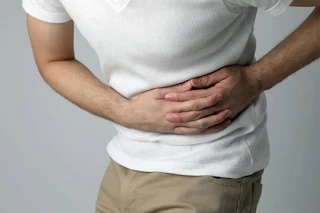Title: Understanding
and Alleviating Kidney
Pain: A Comprehensive
Guide to Kidney Health
Introduction:
Kidney pain can be a distressing experience, often signaling an underlying issue that requires attention. In this comprehensive guide, we will delve into the causes of kidney pain, symptoms to watch out for, and crucial tips for maintaining optimal kidney health. Let's explore how to identify, manage, and prevent kidney pain for a healthier and happier life.
Section 1: Understanding Kidney Pain
Kidney pain, also known as renal pain, is typically felt in the back and can range from mild discomfort to severe agony. The kidneys, responsible for filtering and excreting waste from the bloodstream, play a vital role in maintaining overall health. Various factors can contribute to kidney pain, including infections, kidney stones, and inflammation.
1.1 Causes of Kidney Pain:
a. **Infections:** Urinary tract infections (UTIs) can lead to kidney infections, causing pain and discomfort in the lower back.
b. **Kidney Stones:** The formation of small, hard deposits within the kidneys can cause intense pain when they pass through the urinary tract.
c. **Inflammation:** Conditions like glomerulonephritis or interstitial nephritis can cause inflammation, leading to kidney pain.
Section 2: Identifying Kidney Pain
Recognizing kidney pain is crucial for timely intervention. While the pain may originate in the kidneys, it can radiate to other areas, making it important to distinguish from other types of discomfort.
2.1 Symptoms of Kidney Pain:
a. **Back Pain:** Kidney pain is often felt on one side of the lower back.
b. **Painful Urination:** Discomfort or a burning sensation during urination may indicate kidney issues.
c. **Changes in Urine:** Blood in the urine, changes in color, or an unusual odor can be signs of kidney problems.
Section 3: Managing Kidney Pain
Once kidney pain is identified, prompt management is essential for alleviating discomfort and addressing the underlying causes.
3.1 Home Remedies:
a. **Hydration:** Adequate water intake helps flush out toxins and prevents the formation of kidney stones.
b. **Warm Compress:** Applying a warm compress to the affected area can provide relief from muscle tension and pain.
c. **Over-the-Counter Pain Medication:** Non-prescription pain relievers may be used to manage mild kidney pain, but consult a healthcare professional before prolonged use.
Section 4: Tips for Maintaining
Kidney Health
Preventing kidney issues is as important as managing them. Adopting a healthy lifestyle can significantly contribute to maintaining optimal kidney function.
4.1 Dietary Tips:
a. **Balanced Diet:** Consume a diet rich in fruits, vegetables, whole grains, and lean proteins to support kidney health.
b. **Limit Sodium Intake:** Excessive salt can contribute to high blood pressure and kidney damage, so it's essential to monitor sodium intake.
c. **Moderate Protein Consumption:** While proteins are crucial, excessive intake can strain the kidneys. Opt for a balanced approach.
4.2 Hygiene and Lifestyle:
a. **Maintain Hygiene:** Practice good hygiene to prevent UTIs, a common cause of kidney infections.
b. **Regular Exercise:** Engage in regular physical activity to promote overall health and reduce the risk of chronic conditions affecting the kidneys.
c. **Avoid Tobacco and Excessive Alcohol:** Smoking and heavy alcohol consumption can negatively impact kidney function, so it's advisable to minimize or eliminate these habits.
Conclusion:
Understanding kidney pain, identifying its causes, and implementing effective management strategies are crucial steps towards maintaining optimal kidney health. By adopting a proactive approach to lifestyle choices and incorporating the provided tips, individuals can minimize the risk of kidney issues and promote overall well-being. Remember, if kidney pain persists or worsens, seeking professional medical advice is imperative for a thorough diagnosis and appropriate treatment.





0 Comments